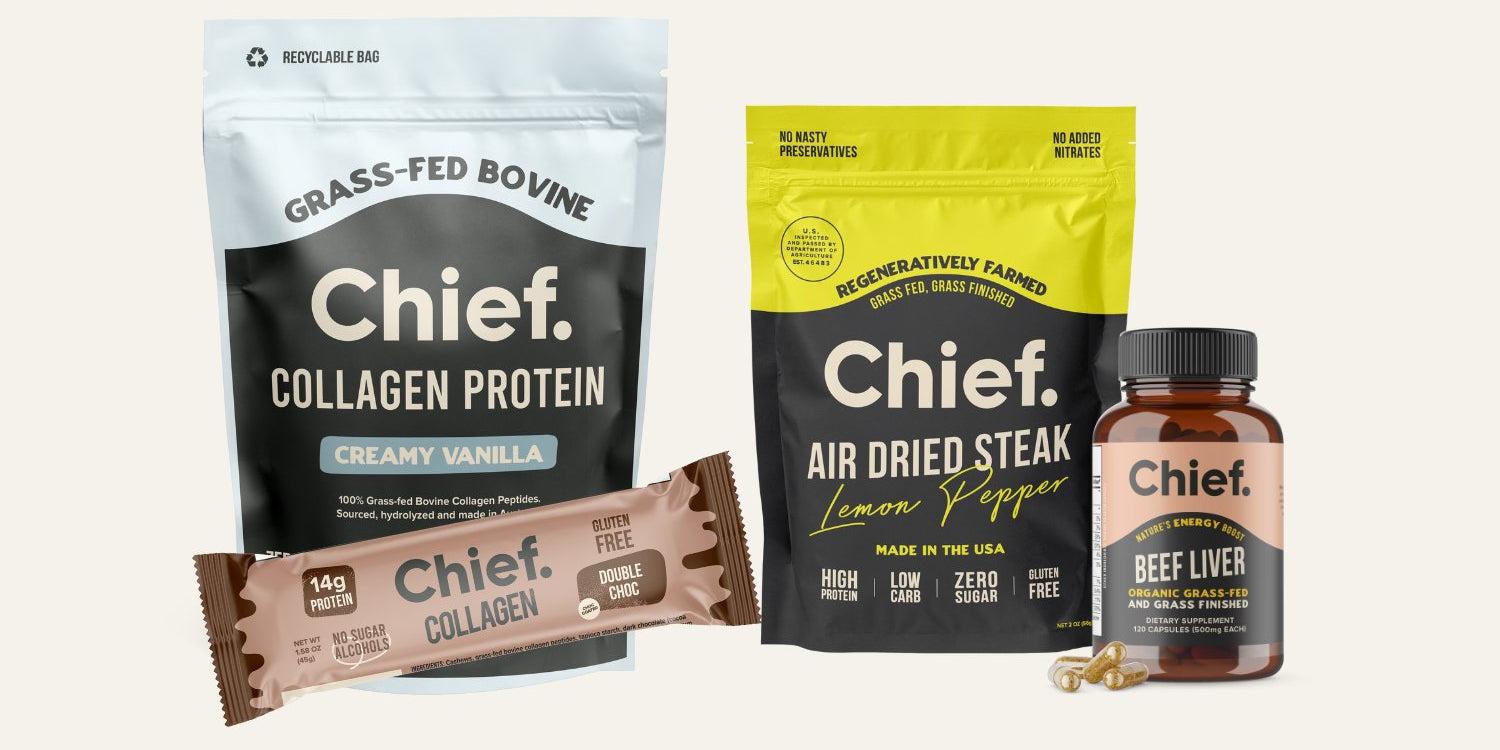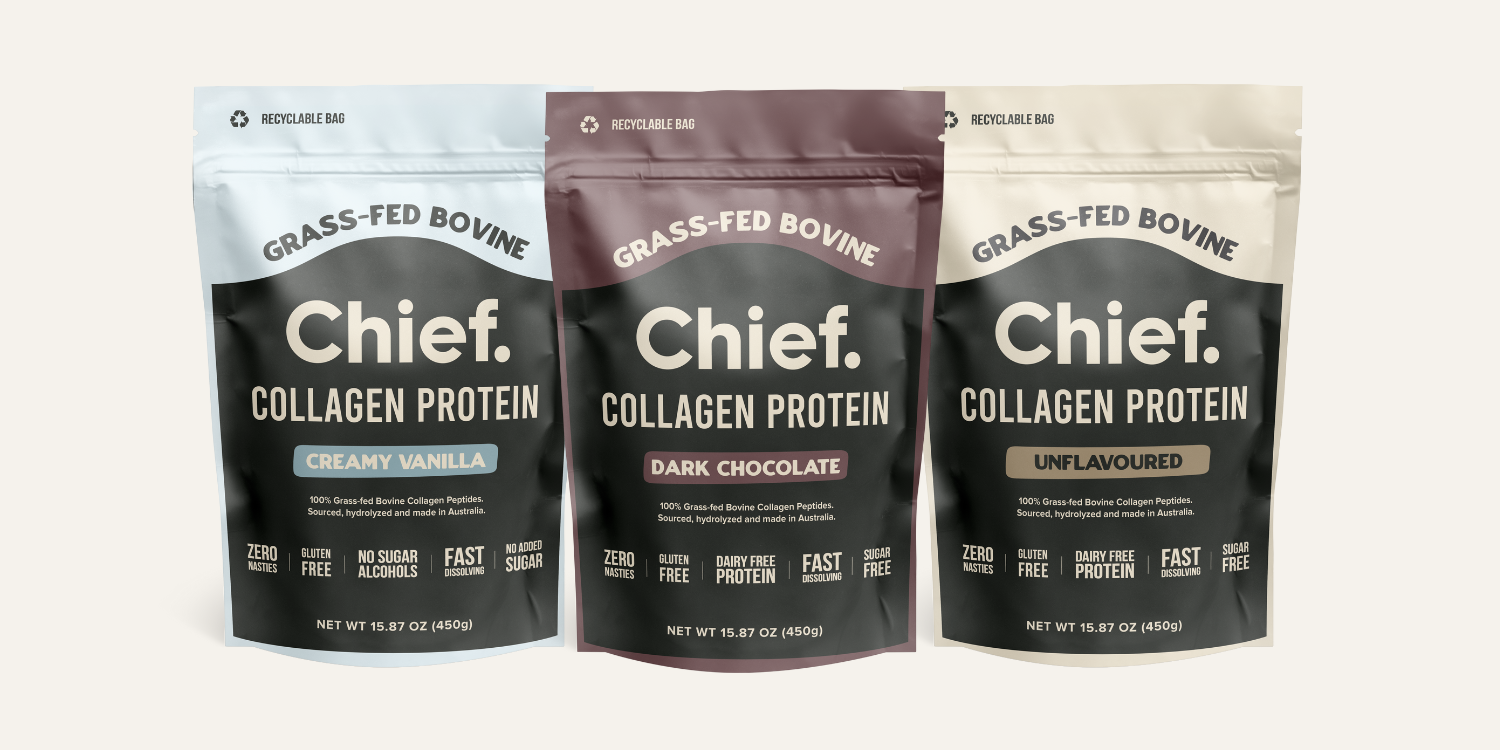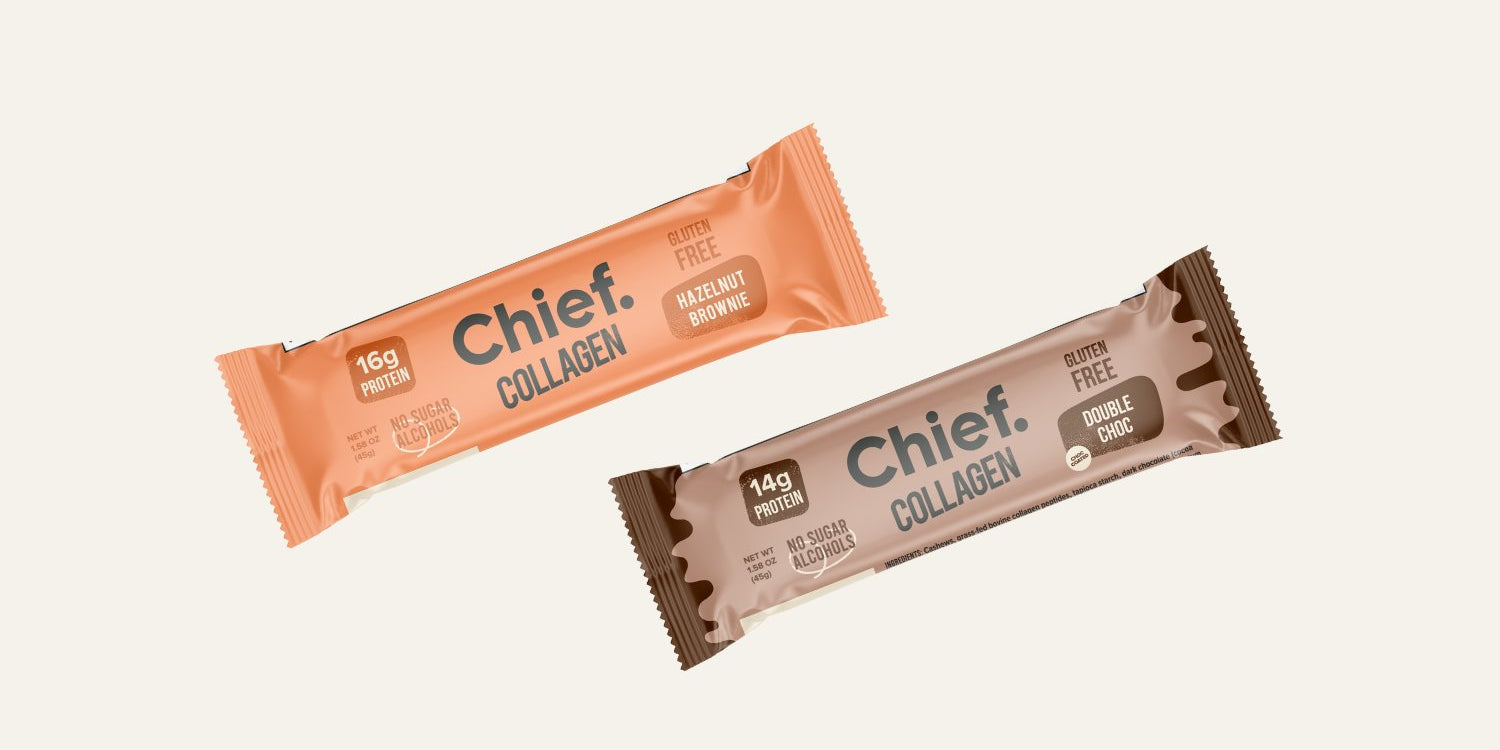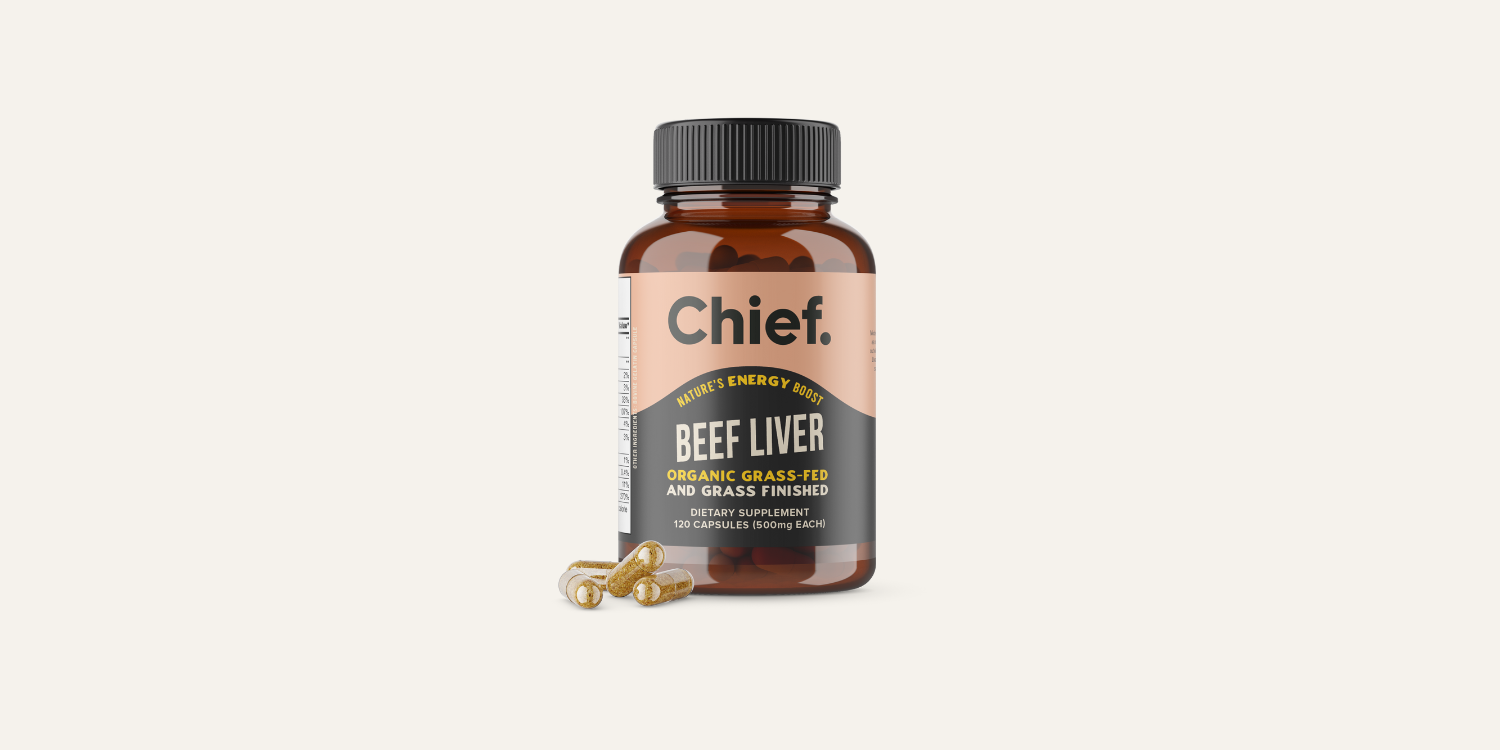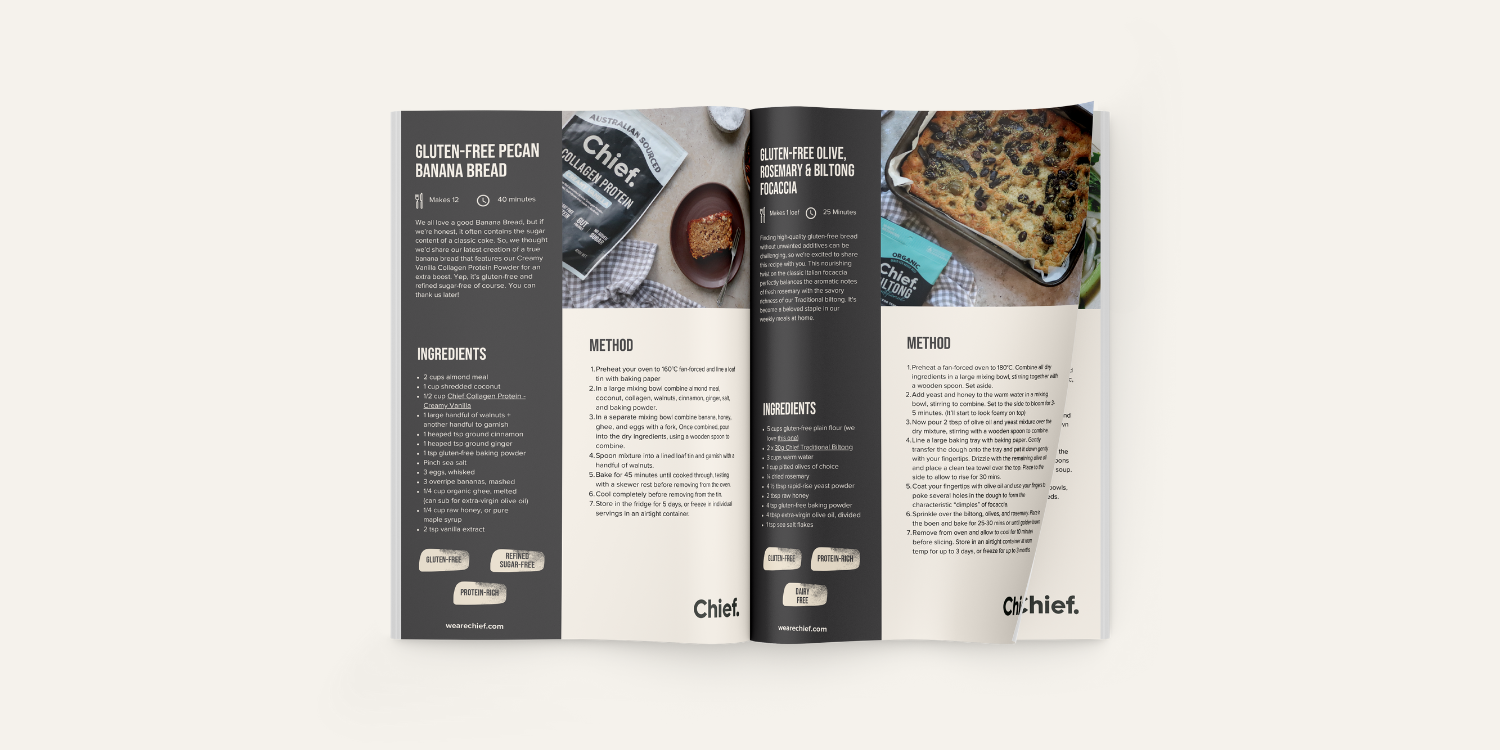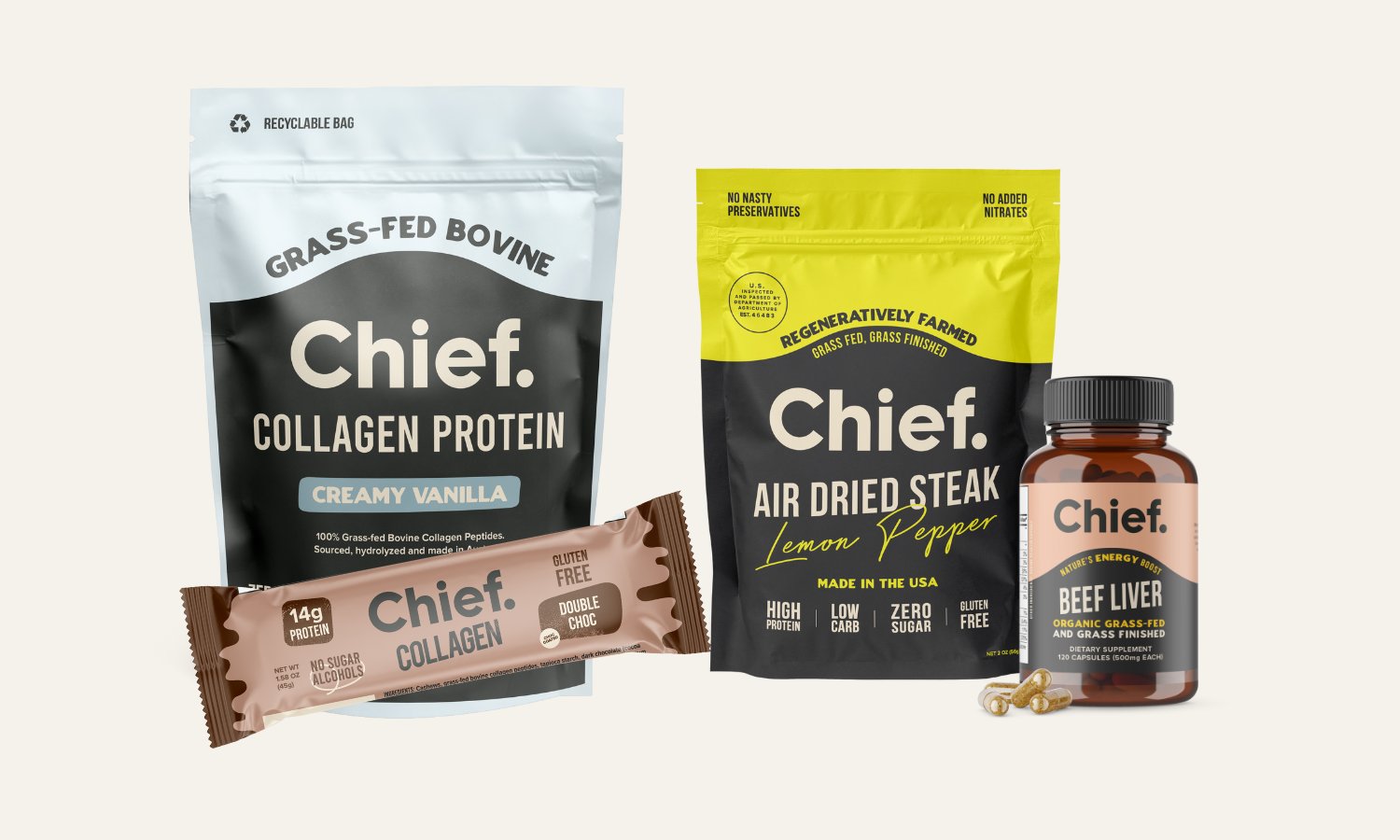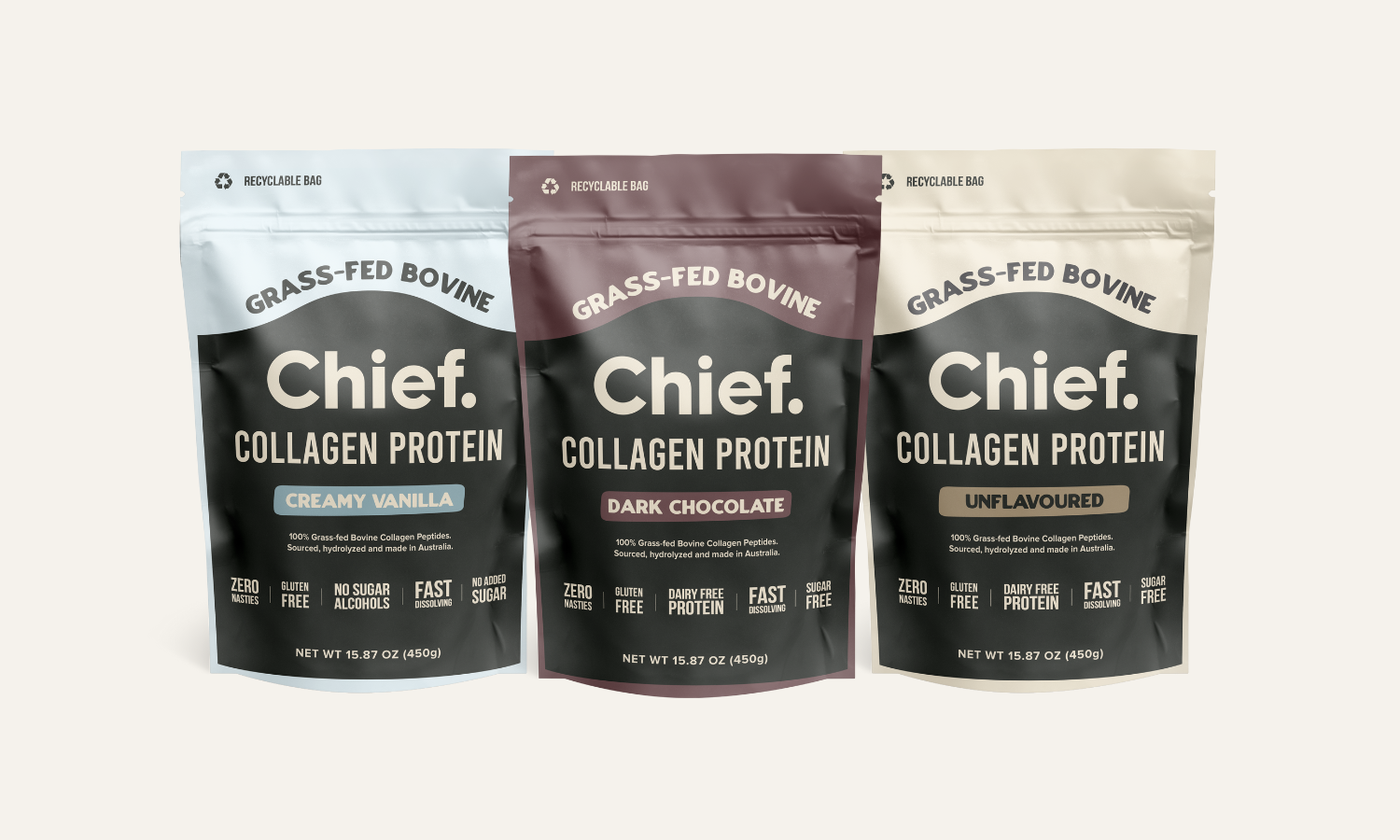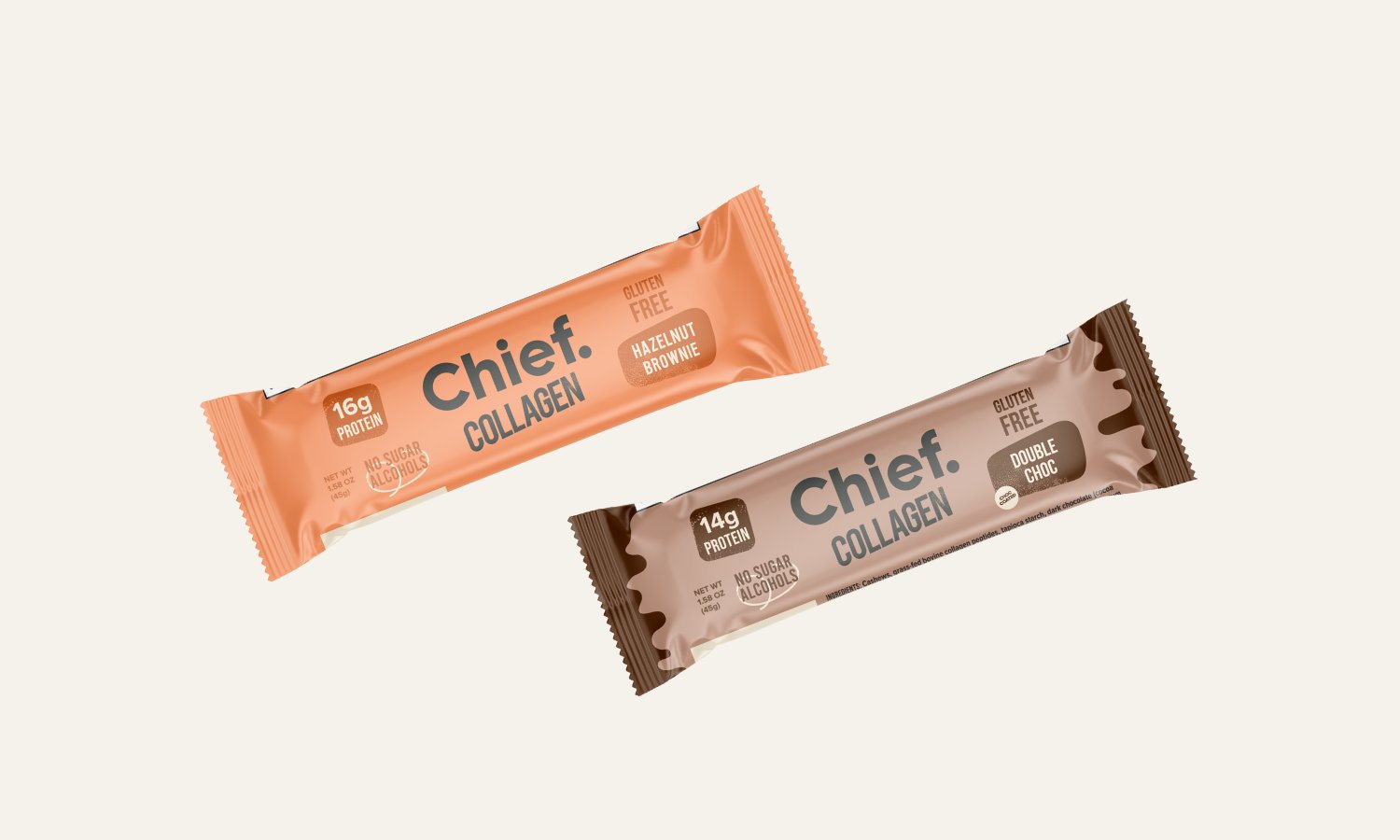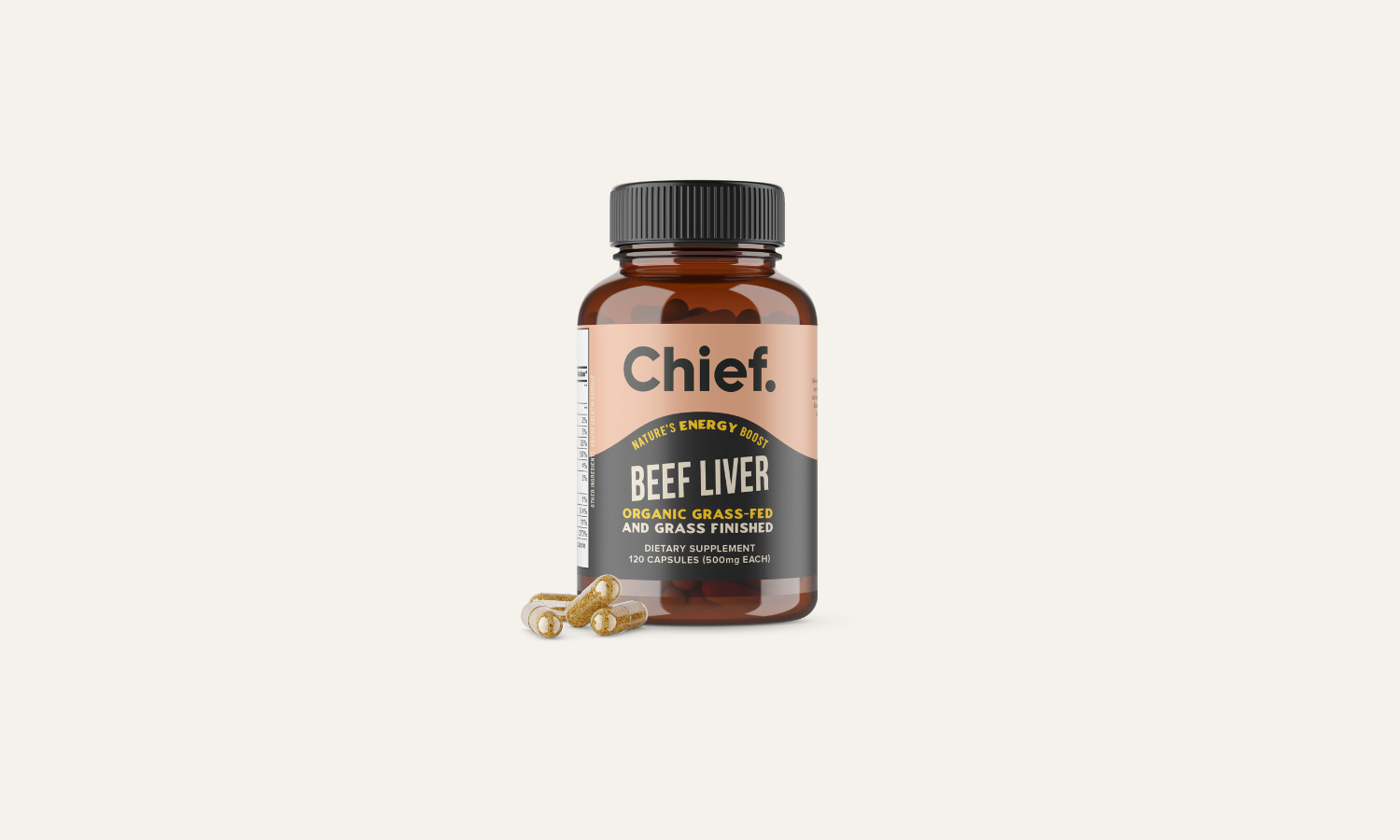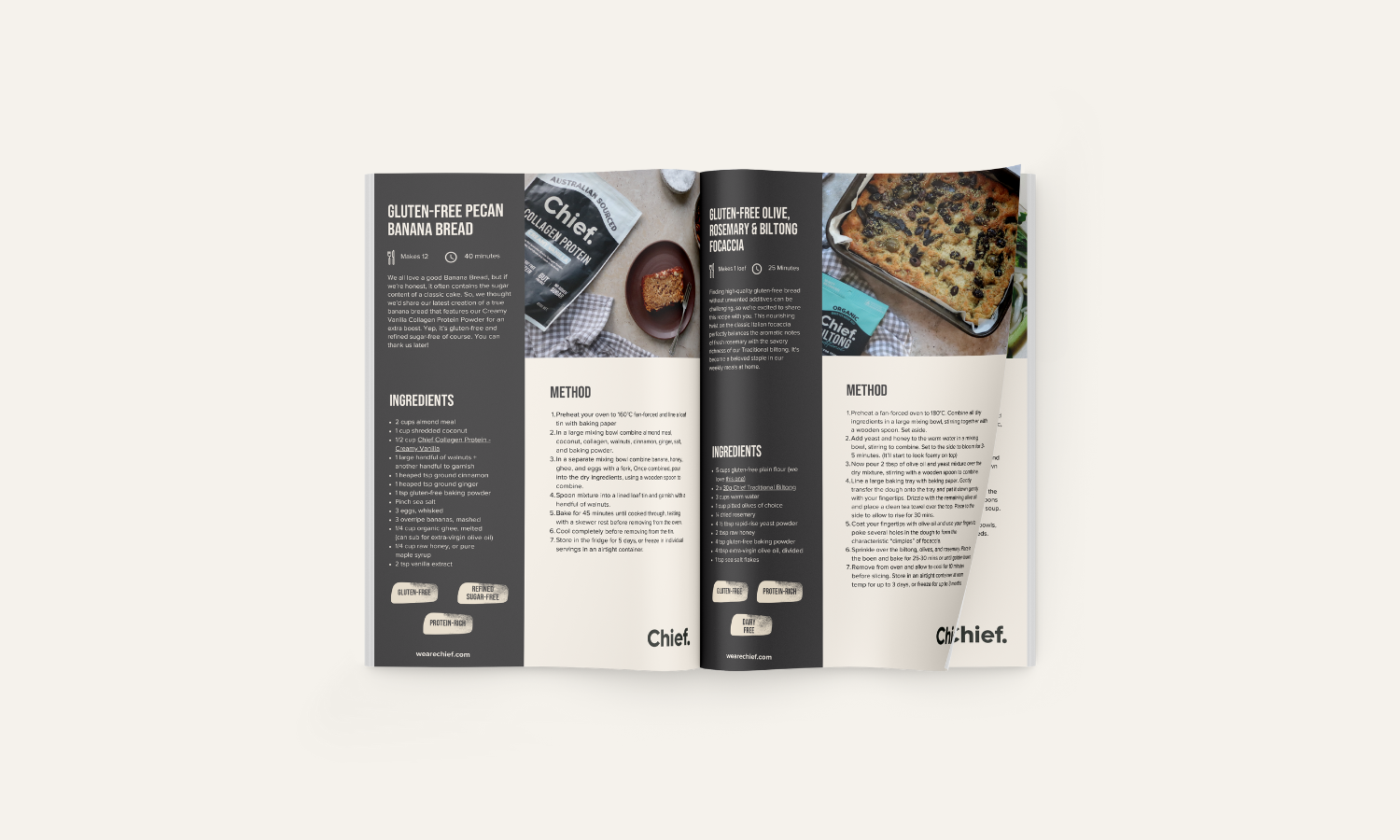Guest post by Deborah Freudenmann, BHSc Naturopath
You’ve probably noticed how PMS sneaks up on you; the mood swings, cramps, skin breakouts, fatigue. It’s easy to feel like it’s just “part of being a woman,” but I believe it doesn’t have to be that way. As a naturopath and functional medicine practitioner, I’ve seen over and over again how nutrient deficiencies, stress, and hormonal imbalances underlie many PMS symptoms and how understanding the causes can shift the whole experience.
The domino effect behind PMS
PMS isn’t caused by just “one hormone being off.” It’s the result of a domino effect inside the body:
When nutrients are low like magnesium, zinc, or B vitamins your body can’t make enough progesterone or serotonin.
Without progesterone to balance it, oestrogen becomes dominant, which brings bloating, breast tenderness, and mood swings.
Meanwhile, stress hormones like cortisol pull even more raw materials away from reproductive hormones. Your body always prioritises survival over reproduction.
And when the gut and liver are overloaded or under supported, oestrogen clearance slows down, adding another layer of imbalance.
This is why PMS feels so complex: it isn’t “just hormones,” and it isn’t “just stress.” It’s the interaction of stress, nutrient depletion, and hormone signalling… one affecting the other in a loop.
When you see PMS through this lens, the solution makes more sense too. Instead of masking symptoms, the goal is to break the cycle at its foundation by restoring nutrients, calming stress, and supporting natural hormone rhythm. So, let’s get to it!
Causes of PMS
In functional medicine, understanding the why matters as much as treating the what. Here’s what sits beneath most PMS cases:
- Hormonal imbalance: oestrogen dominance and low progesterone are the common drivers of PMS
- Neurotransmitter shifts: low serotonin in the luteal phase fuels cravings, anxiety, and poor sleep
- Nutrient deficiencies: magnesium, zinc, B6, vitamin D, and iron are critical for hormone and neurotransmitter production
- Gut & liver overload: poor oestrogen clearance in the gut or sluggish liver detox worsens symptoms
- Stress & cortisol: chronic stress robs progesterone and leaves the nervous system overstimulated
- Environmental toxins: endocrine disruptors (like BPA and pesticides) mimic oestrogen and tip the balance further
- Natural remedies for PMS: food, nutrients & lifestyle
Here’s the good news…PMS isn’t a fixed reality. It’s not something you’re doomed to live with forever. When we look at it through the lens of nourishment, food, and lifestyle, it becomes clear that PMS is deeply influenced by the raw materials we give our bodies every day.
Everyday foods that support hormone balance
Take carrots, for example. Their unique fibres actually bind to excess oestrogen in the gut, carrying it out of the body instead of letting it recycle back into the bloodstream. It’s such a simple supportive tool. Flaxseeds do something similar in a different way. The lignans they contain modulate oestrogen activity while providing omega-3s and fibre.
Then there are the cruciferous vegetables such as broccoli, cauliflower, kale, Brussels sprouts. Inside them are compounds like indole-3-carbinol, DIM, and sulforaphane, which support the liver in breaking down oestrogen into safer forms. Mushrooms, too, play a surprising role. Even common button mushrooms contain natural compounds that help regulate oestrogen activity. Citrus fruits, rich in d-limonene, directly enhance liver detoxification pathways, further supporting hormone clearance.
Nutrients for progesterone & hormone resilience
On the other side of the equation, progesterone needs its building blocks. Zinc is essential because it stimulates luteinizing hormone (LH), the very signal that tells your ovaries to produce progesterone. Vitamin B6 supports the conversion of hormone precursors into progesterone, while also balancing serotonin. Magnesium, one of the most depleted minerals in modern life, helps convert cholesterol into progesterone and relaxes the uterine muscle at the same time. Omega-3 fatty acids reduce inflammation and improve hormone signalling, while antioxidants like vitamins C, E, and D protect progesterone levels and keep the luteal phase resilient.
Whole food supplements: closing the gap
Of course, even with the best diet, modern life doesn’t make it easy to hit these nutrients consistently every single day. That’s where whole food-based supplements can bridge the gap. Collagen, for instance, delivers glycine, an amino acid that calms the nervous system, repairs the gut lining, and lays the foundation for hormone balance. Chief Collagen Protein powders slip easily into smoothies, soups, or even your morning coffee, making it one of the simplest daily rituals you can add.
Beef liver is another powerhouse. Sometimes called “nature’s multivitamin,” it’s incredibly rich in iron for building blood and energy, B12 for mood and cognition, vitamin A for immunity, and zinc for hormones. Chief Beef Liver Capsules or Powder provide this dense nutrition in its purest form without synthetics or fillers. For menstruating women, pregnancy, or postpartum recovery, it’s one of the most effective ways to prevent nutrient depletion.
They’re reliable foundations that help women maintain nutrient reserves in the face of stress, shifting hormones, and daily demands.
If you’ve read this far and thought yes, sounds amazing but when do I include what? Don’t worry, were going to cover that now phase by phase!
Supporting your cycle, phase by phase
Menstrual Phase (Days 1–5)
This is when bleeding begins and your hormone levels are at their lowest. It’s an energy-intensive time for your body.
Focus on replenishment: Dark leafy greens, nuts, seeds, and dark chocolate provide magnesium and iron to replace what’s lost. Omega-3-helps ease cramps and inflammation.
Chief support: 4 x Chief Beef Liver Capsules/day to restore iron, B12, and vitamin A for blood building. For those chocolate cravings; Chief Collagen Protein Bars - Choc Mint hits the spot just right.
Follicular Phase (Days 6–14)
Oestrogen begins to rise here, preparing the body for ovulation and increasing energy and mood.
Focus on metabolism: Cruciferous vegetables like broccoli, cauliflower, and kale help the liver metabolise oestrogen. Flaxseeds and citrus fruits support oestrogen balance and clearance.
Chief support: At least 1 serve of Chief Collagen Protein/day OR Chief Collagen Protein Bars (any flavour) amino acids for gut, skin, and hormone resilience.
Ovulatory Phase (Around Day 14-16)
Ovulation is when the egg is released and energy levels often peak. Oestrogen is at its highest, and detox pathways need extra support.
Focus on detoxification: High-fibre foods like carrots, mushrooms, and citrus help the body clear excess oestrogen. Lighter proteins and grains (like quinoa) keep energy stable without overloading digestion.
Chief support: At least 1 serve of Chief Collagen Protein/day OR Chief Collagen Protein Bars (any flavour) to support tissue repair.
Luteal Phase (Days 16–32, depending on your personal cycle length)
If progesterone is strong, mood feels steady and sleep improves. If not, PMS symptoms appear from bloating and cravings to irritability.
Focus on progesterone building: Magnesium-rich greens, zinc-rich foods, vitamin B6 (from chicken, chickpeas) and omega-3s all support progesterone production. Complex carbs like sweet potato help stabilise serotonin and mood.
Chief support: 4 x Chief Beef Liver Capsules per day to deliver vitamin A, zinc, iron, and B12. At least 1 serve of Chief Collagen Protein - Dark Chocolate to calm the nervous system and support skin, joints, and gut lining through the hormonal dip.
Beyond food: the lifestyle piece
Nourishment lays the groundwork, but PMS improves most when the whole system feels safe. Stress management helps lower cortisol and protects progesterone from being drained. Restful sleep regulates circadian rhythms and hormone sensitivity. Movement especially strength training and walking improves insulin sensitivity and stabilises mood. Reducing endocrine disruptors, like plastics, pesticides, and synthetic fragrances, lightens the oestrogen burden and makes the hormonal balancing act a little easier.
Final note
PMS isn’t something you just have to live with. It’s your body asking for balance. By bringing in nutrient-dense foods, supporting progesterone, and using whole food supplements like collagen and beef liver, you create the foundation for cycles that feel steady not chaotic.
Supporting your cycle isn’t just about reducing PMS. It’s about protecting fertility, pregnancy, postpartum health, and long-term resilience. That all starts with nourishment.
Deborah Freudenmann, BHSc Naturopath
https://www.instagram.com/deborah_108/
https://youtrulyshine.com
References
- Darjee B, Sharma S, Rai S, Chettri B, Chettri Y, Tuccu SH, Moirangthem A, Chatterjee A. Impact of Hormonal Imbalance during Menstrual Cycle: A Review. Clinical Research and Studies. 2025;4(2). doi:10.31579/2835-2882/082
- Hantsoo L, Epperson CN. Premenstrual Dysphoric Disorder: Epidemiology and Treatment. Curr Psychiatry Rep. 2015;17(11):87. doi:10.1007/s11920-015-0628-3
- Yaralizadeh M, Nezamivand-Chegini S, Najar S, Namjoyan F, Abedi P. Effectiveness of Magnesium on Menstrual Symptoms Among Dysmenorrheal College Students: A Randomized Controlled Trial. Int J Womens Health Reprod Sci. 2023;11(2):93-100. doi:10.15296/ijwhr.2023.25. PMID: 38062974.
- Wyatt KM, Dimmock PW, Jones PW, Shaughn O'Brien PM. Efficacy of vitamin B-6 in the treatment of premenstrual syndrome: systematic review. BMJ. 1999 May 22;318(7195):1375-81. doi: 10.1136/bmj.318.7195.1375. PMID: 10334745; PMCID: PMC27878.
- Maryann Kwa, Claudia S. Plottel, Martin J. Blaser, Sylvia Adams, The Intestinal Microbiome and Estrogen Receptor–Positive Female Breast Cancer, JNCI: Journal of the National Cancer Institute, Volume 108, Issue 8, August 2016, djw029, https://doi.org/10.1093/jnci/djw029
- Thompson LU, Chen JM, Li T, Strasser-Weippl K, Goss PE. Dietary flaxseed alters tumor biological markers in postmenopausal breast cancer. Clin Cancer Res. 2005 May 15;11(10):3828-35. doi: 10.1158/1078-0432.CCR-04-2326. PMID: 15897583.
- Fenster L, Waller K, Chen J, Hubbard AE, Windham GC, Elkin E, Swan S. Psychological stress in the workplace and menstrual function. Am J Epidemiol. 1999 Jan 15;149(2):127-34. doi: 10.1093/oxfordjournals.aje.a009777. Erratum in: Am J Epidemiol 1999 Apr 1;149(7):686. PMID: 9921957.
- Grube BJ, Eng ET, Kao YC, Kwon A, Chen S. White button mushroom phytochemicals inhibit aromatase activity and breast cancer cell proliferation. J Nutr. 2001 Dec;131(12):3288-93. doi: 10.1093/jn/131.12.3288. PMID: 11739882.
- Rochester JR. Bisphenol A and human health: a review of the literature. Reprod Toxicol. 2013 Dec;42:132-55. doi: 10.1016/j.reprotox.2013.08.008. Epub 2013 Aug 30. PMID: 23994667.
- Bedwal RS, Bahuguna A. Zinc, copper and selenium in reproduction. Experientia. 1994;50(7):626-640. doi:10.1007/BF01952862
- Sultana A, Rahman K, Heyat MBB, Sumbul, Akhtar F, Muaad AY. Role of Inflammation, Oxidative Stress, and Mitochondrial Changes in Premenstrual Psychosomatic Behavioral Symptoms with Anti-Inflammatory, Antioxidant Herbs, and Nutritional Supplements. Oxid Med Cell Longev. 2022 Jul 13;2022:3599246. doi: 10.1155/2022/3599246. PMID: 35873799; PMCID: PMC9300296.
- Chen H, Shao F, Zhang F, Miao Q. Association between dietary carrot intake and breast cancer: A meta-analysis. Medicine (Baltimore). 2018 Sep;97(37):e12164. doi: 10.1097/MD.0000000000012164. PMID: 30212943; PMCID: PMC6156046.
- Michnovicz JJ, Adlercreutz H, Bradlow HL. Changes in levels of urinary estrogen metabolites after oral indole-3-carbinol treatment in humans. J Natl Cancer Inst. 1997 May 21;89(10):718-23. doi: 10.1093/jnci/89.10.718. PMID: 9168187.

